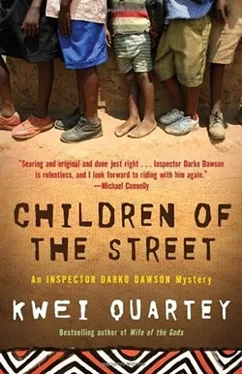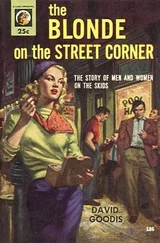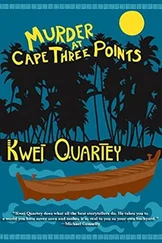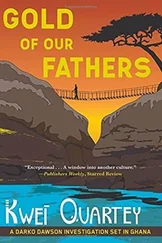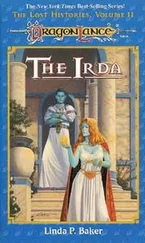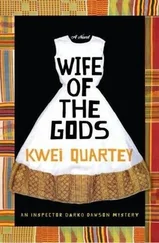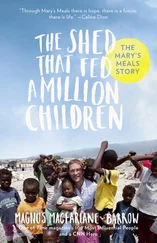People asked Sly who his companion was. He gave the same answer every time. “He’s Darko, my friend.” It was best that way. They didn’t take to policemen. If casual queries about the corpse in the lagoon yielded little to no useful information, it was still more than Dawson would get if people knew he was a detective.
They passed a small mosque that stood out as one of the few brick buildings in Agbogbloshie. A man inside was prostrate on his prayer mat.
“There is my house,” Sly said, slowing down and pointing. “Where those boys are playing.”
Four teenagers were kicking and heading a soccer ball back and forth to one another without allowing it to touch the ground. A man sat in front of a windowless, eight-foot-square wooden shack raised off the ground on short stilts.
“Is that your uncle?” Dawson asked.
“Yes.”
Sly’s uncle saw them approaching. For a moment he didn’t move, but he finally rose to his feet as they came closer. He was frowning-the puzzled kind of frown-and then he looked wary.
“Good morning?” He was average height with squinting eyes. His hair was graying at the temples and retreating from his dome forehead. He had tribal marks on both cheeks.
“Good morning, sir. My name is Darko Dawson.”
“Yessah. I’m Gamel.” His voice was like gravel.
Behind him, the door of his living quarters was ajar, and Dawson caught a glimpse of a thin foam floor mattress as holey as Swiss cheese.
“Have he do someting wrong?” Gamel asked, gesturing at Sly.
“No,” Dawson said. “This morning he reported a dead body to the police.”
“A dead body?”
Suddenly angry, Gamel began scolding Sly in Hausa. Without warning, he lunged at the boy, but Dawson blocked his move.
“Hold on, my friend,” he said. “Come with me and let’s talk. Sly, wait here for us.”
Dawson and Gamel ducked into a tight space between his shack and the next. It reeked of urine. The two men stood barely six inches apart.
“What is your problem with Sly?” Dawson asked.
“I tell him say, if you talk to policeman you go bring plenty trouble for house. But the boy never listen.”
“He did the right thing,” Dawson said.
Gamel grew wary as realization dawned. “You are policeman?”
“Yes.”
The whites of Gamel’s eyes flashed like those of a shying horse. He took a confined step back.
“Relax,” Dawson said, “I’m not accusing you of anything.”
Gamel breathed again.
“Does Sly go to school?” Dawson asked.
Gamel hesitated. “No, sah.”
“Why not?”
“I tell him say go to school, sah. He no like.”
“How old are you, Gamel?” Dawson snapped.
“Forty-two, sah.”
“How old is Sly?”
“Nine.”
“Who do you think should be making sure he gets to school?”
Gamel looked away without answering.
“Is he even registered to attend school?” Dawson demanded.
“No, sah,” Gamel said heavily.
“Okay, listen to me,” Dawson said. “Sly should be in school. My wife is a teacher. Maybe we can help Sly register in a public school. We’ll come back and see you in a few days.”
Gamel nodded. “Yessah. Thank you.”
“One other thing,” Dawson added, moving in close. He put his hand on the other man’s oily neck and brought his thumb around to rest on the larynx.
“If you beat the boy, I will hear about it and you’ll be sorry you did it. You understand?”
Gamel nodded stiffly. “Yes, sah.”
Dawson kept his hand on Gamel’s neck for a moment longer before releasing him. “Good.”
Dawson hurried back across the littered wasteland to the crime scene. Bright and his men were rolling the body onto a board rigged with a long rope at one edge. They returned to the bank and grabbed hold of the rope tug-o’-war style. With Bright chanting, “One, two, three, pull! ” they brought the body out of the muck and onto the bank.
For a moment, Dawson and the others stood staring at the corpse. It was hideously inflated with gases of putrefaction and coated with a patina of glistening lagoon slime. The face was puffed up three times normal, the chest and belly balloon-like. The smell was dizzying. Dawson choked and swallowed down nausea rising in his throat like a fountain.
Gritting his teeth, he crouched by the body, determined not to throw up. The person had no shoes, his clothes were blackened and soiled-a T-shirt, long shorts that guys in Accra wore-nothing out of the ordinary. Difficult to say how old he was, and so far, there was no indication of what exactly had killed him.
Dawson stood up, feeling ill. He looked at Bright. “Anything else, sir?”
Bright shook his head. “If you are done, we will transport the body to the Police Hospital Mortuary.”
It was afternoon when Dawson headed home. Canvassing the Agbogbloshie neighborhood had been fruitless. If anyone had seen the dead body being dumped, they weren’t saying.
Dawson turned onto the slight incline of Nim Tree Avenue. Lined on either side with fortunately clean gutters, the street ran in an east-west direction. At this time of day, Darko was riding into the sun. The sky, a pale, clean blue overhead, was bright and almost white at the horizon, making the street appear luminous.
Dawson’s house at No. 10 Nim Tree was cream-colored with olive trim. The mango tree on one side had just begun to fruit. It was a tiny dwelling, yet it was still a million times better than the sorry GPS barracks where even a chief inspector could often afford only a single room. Policemen were not a rich bunch, and detectives were possibly the least well paid. Dawson and Christine could afford No. 10 only because their landlord was a member of her extended family. He gave them a generous discount and made up for it with his other property. That their low rent depended on family ties made Dawson a little nervous. Family and money could be a dangerous mix.
Every time he came home, Dawson felt a surge of thankfulness, like the swell of a wave. The little house was a sanctuary, armor against the wickedness of the crime he dealt with every day. A bit of a fortress too. His police sense had led him to burglarproof the house to the extreme.
Christine’s red Opel, which was so small Dawson felt he could pick it up and carry it under his arm, was parked in front of the house, meaning she and Hosiah were home from the regular Sunday visit to her mother after church and Sunday school.
“I’m home!” he called out as he came in through the rear kitchen door.
“Hi, Dark.”
Christine was in the sitting room on the sofa as she read the paper.
“Hi, sweetie.” He kissed her on the forehead.
“Tough case?”
“Horrible. Dead man in Korle Lagoon.”
Christine winced, barely a ripple on the fine sheen of her complexion.
“I need some help on something,” Dawson said, sitting down beside her. Before he could get any further, Hosiah came running in and dived onto Dawson’s lap.
“Hi, Daddy!”
“Hey, champ!” Darko sat his son up straight and snuggled him against his chest.
“Guess what I made,” Hosiah said.
“A sports car?”
“No.”
“A truck?”
“No,” Hosiah said, laughing. “Come with me and I’ll show you. But you have to close your eyes first and I’ll tell you when you can open them.”
At his bedroom door, he said, “You can open your eyes now.”
In the middle of the floor of the small bedroom was one of Hosiah’s increasingly complex creations. A genius with his hands, he adroitly crafted model cars, trucks, and motorbikes out of empy cans and milk cartons, old matchboxes, bottle caps, rubber bands, and bits of cardboard. The end products were surprisingly fine toys, considering the crudity of the raw materials Hosiah worked with.
Читать дальше
